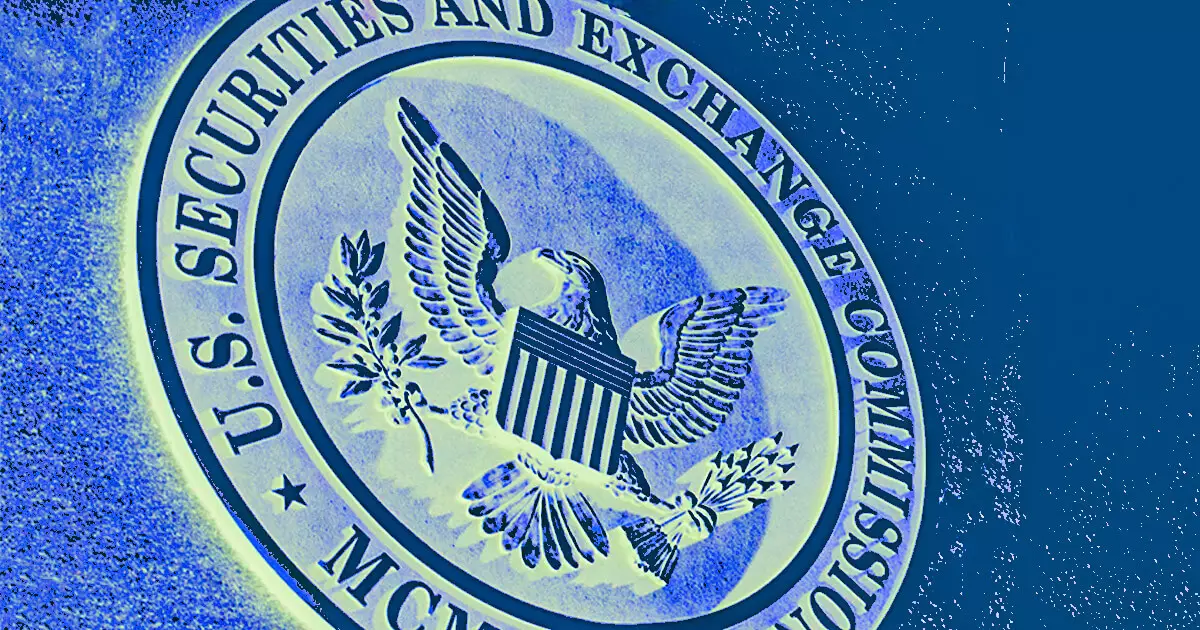In the rapidly evolving landscape of digital assets, the intersection of non-fungible tokens (NFTs) and securities regulation has sparked significant debate. Recent actions by the U.S. Securities and Exchange Commission (SEC) against the Flyfish Club, a high-end dining establishment that raised substantial funds through NFT sales, provide a poignant case study in the ongoing struggle to define the boundaries of cryptocurrency regulation. As this case unfolds, the implications for both creators and investors in this space become increasingly critical.
The SEC recently charged the Flyfish Club for allegedly conducting an unregistered offering of crypto asset securities in the form of its NFTs. The club had sold approximately 3,000 NFTs, generating revenue that amounted to an impressive $14.8 million, supplemented by $2.7 million from secondary sales. This enforcement action, which culminated in a $750,000 civil penalty and a commitment to cease-and-desist order, has drawn sharp criticism from SEC Commissioners Hester M. Peirce and Mark T. Uyeda. They contend that the application of securities laws in this instance is inappropriate, arguing that the NFTs are utility tokens designed to offer holders exclusive dining experiences rather than serving as traditional investment vehicles.
Understanding Utility vs. Security
Peirce and Uyeda highlighted the essence of the Flyfish NFTs, emphasizing that their value stems from the unique experiences they provide rather than profit-making potential, a crucial criterion established by the Howey Test—often used to determine whether an asset qualifies as a security. Their dissent encapsulates concerns regarding the broader implications of classifying NFTs as securities, suggesting that such actions may hinder innovation and experimentation in the digital asset space. They advocate for clearer regulatory guidelines that would allow creators to operate without fear of unwarranted penalties, emphasizing the need for a regulatory framework that distinguishes between utility and security.
The SEC’s stance is not limited to the Flyfish Club; it extends to platforms such as OpenSea, which received a Wells Notice from the regulator, indicating potential enforcement actions. OpenSea CEO Devin Finzer voiced strong resistance to the SEC’s approach, arguing that it jeopardizes the livelihoods of artists and creators who depend on these digital marketplaces. The outcry has sparked the launch of the Creator Defense Fund—financed by the Coinbase-backed Stand With Crypto Alliance—which aims to protect those adversely affected by SEC’s regulatory tendencies.
The Need for Regulatory Clarity
As the digital asset ecosystem continues to grow, the necessity for clear, consistent, and fair regulations becomes ever more pressing. Stakeholders must navigate a complicated regulatory landscape rife with uncertainty, exacerbated by differing interpretations of laws concerning NFTs and other digital assets. The need for collaboration between regulators and the crypto community has never been more imperative, and establishing a balanced regulatory regime will be essential for fostering growth without stifling innovation.
As the SEC takes a firm stance on NFTs, the resultant dialogue is reshaping the frameworks of digital asset regulation in profound ways. Moving forward, it is imperative that both regulators and industry players engage constructively to create an environment that respects the uniqueness of NFTs while ensuring consumer protection.
















Leave a Reply